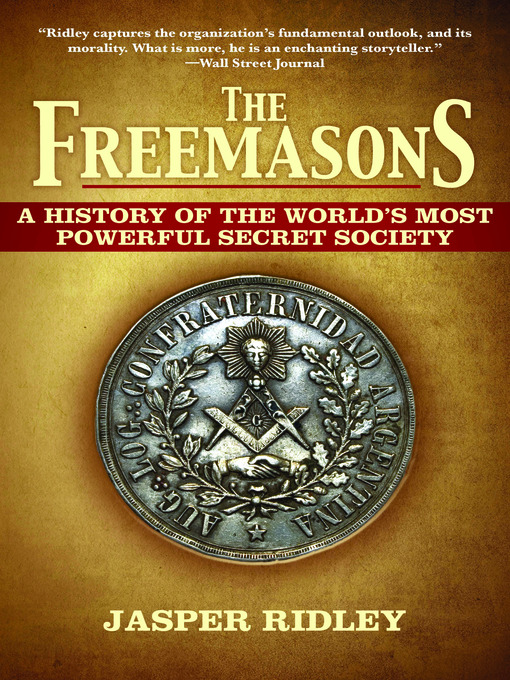What did Mozart and Bach, Oscar Wilde and Anthony Trollope, George Washington and Frederick the Great, Winston Churchill and Franklin D. Roosevelt have in common? They were all freemasons.
The Freemasons are a subject of endless fascination. To the layman, they are a mysterious brotherhood of profound if uncertain influence, a secret society purported, in some popular histories, to have its roots in the fabled order of the Knights Templar or in the mysteries of the Egyptian pyramids. They evoke fears of world domination by a select few who enjoy privileged access to wealth and the levers of power. The secrecy of their rites suggests the taint of sacrilege, and their hidden loyalties are sometimes accused of undermining the workings of justice and the integrity of nations.
In this much-needed reassessment, Jasper Ridley offers a substantial work of history that sifts the truth from the myth as it traces Freemasonry from its origins to the present day. Ridley recounts the development of Freemasonry from the guilds of freestone masons, the master builders of the Middle Ages, into societies of "gentlemen masons" and "speculative masons" in the seventeenth century, culminating in the formation of the Grand Lodge in London in 1717. Delineating the spread of the brotherhood to Europe, the New World, and the East, he weighs the role Freemasonry is supposed to have played in the American Revolution (some of our Founding Fathers were masons, among them George Washington and Benjamin Franklin) as well as those in France, South America, and later Russia. Ridley puts into proper perspective the contributions of "the Craft" to civilization over the centuries. Not a mason himself, he nonetheless refutes many of the outrageous allegations made against Freemasonry, while at the same time acknowledging the masons' shortcomings: their clannishness, misogyny, obsession with secrecy, and devotion to arcane ritual.
In shining a light on a society cloaked in mystery, The Freemasonsprovides balance, fluid writing, meticulous research, and a thoughtful perspective. But one of the pleasures of this book not to be overlooked is that it also comprises a compendium of notable Freemasons throughout the centuries, a Who's Who of prominent politicians and other leaders, writers, businessmen, thinkers, and artists. Jasper Ridley concludes his illuminating and immensely readable survey with a chapter on Freemasonry in America today and an answer to the question, Are the Freemasons a menace?

